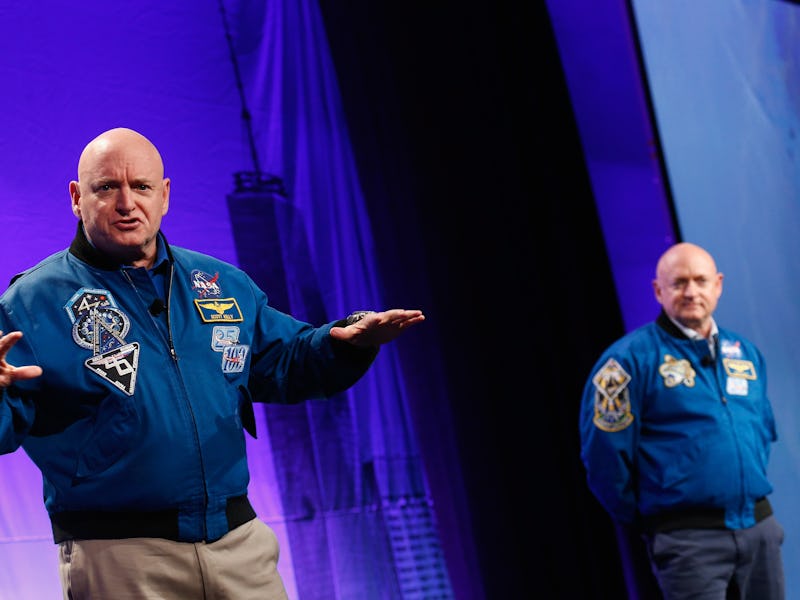An announcement this week from scientists at Northwestern University says that living in space slightly changes the composition of a person’s gut bacteria, also known as the microbiome. This research, while still in its early stages, has strong implications for the future of long-term space flight. Since it looks more and more probable that humans will travel to Mars within our lifetime, it only seems right that we should figure out how long-term space travel can affect our bodies. Plus, with recent popular depictions of long-term human spaceflight, as in the film Passengers, the public could use some well-grounded research on the topic.
The research subject, NASA astronaut Scott Kelly, returned from his record year in space 11 months ago. Upon returning to Earth, he began his career as a guinea pig. Scott has an identical twin brother, Mark, who is also an astronaut but who remained on Earth while Scott lived in space. These identical twins’ near-identical career paths provide scientists with the unique opportunity to study how long-term space travel affects a human body, with Scott as the test subject and Mark as the control group. Scientists at ten different research institutions have been studying different aspects of the Kellys’ physiology, and they’ve recently begun to announce some of the results of these studies.
A new batch of test results came out this week, showing that the composition of microscopic organisms in Scott’s digestive system had been altered during his time in space. “We are seeing changes associated with spaceflight, and they go away upon return to Earth,” said Fred W. Turek, one of the lead authors on the study, in this week’s announcement. These changes include shifts in the balance of types of bacteria, fluctuations in the number of certain types of bacteria during Scott’s time in space, differences in microbe populations between the two brothers (though this is always to be expected when comparing two people), and, surprisingly, a lack of overall changes in microbial diversity. In other words, Scott’s microbiome shifted a bit, but all the same species he blasted off with came back to Earth with him. Any abnormalities settled out upon his return.
The researchers still have lots of work to do, and they’re not exactly sure what these findings mean yet, but it seems like good news that a person lived in space for a year and his microbiome wasn’t altered in any bizarre ways. In conjunction with other studies, researchers should be able to use the Kellys to give us a clearer idea of what to expect from long-term space travel.
